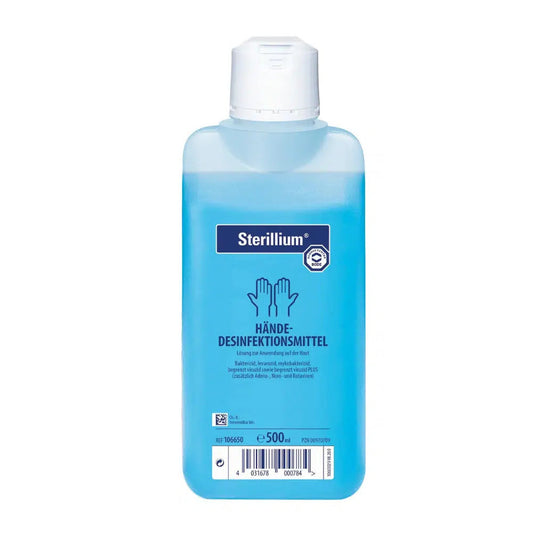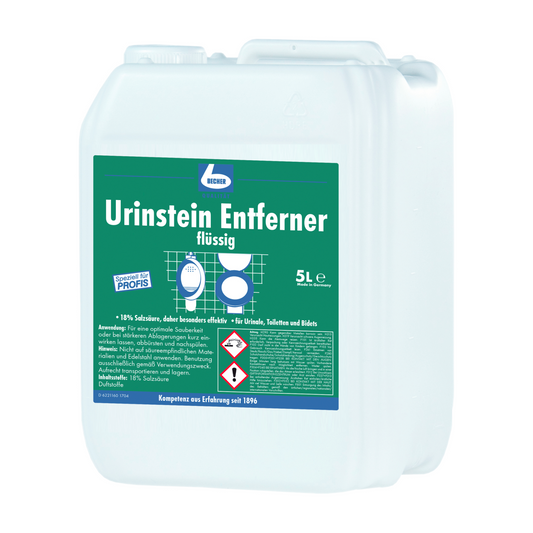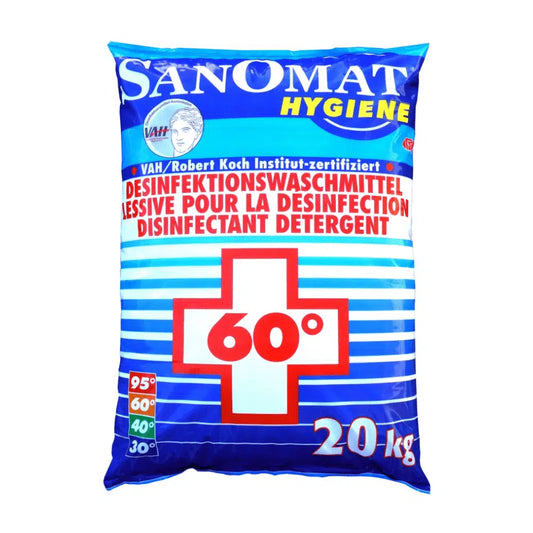
What is Pots - Definition, Symptoms, Causes and Diagnosis
Today I would like to address a special topic that often flies under the radar, but is a real challenge for those affected: the postural tachykardy syndrome, better known as the acronym Pots. If you or someone you know, experienced strange symptoms such as dizziness, fast heartbeat or weakness when getting up, then this blog post could be an eye opener. We will talk about Pots syndrome test, diagnosis, treatment and even POTS testimonials. So, make it comfortable, because this will be an insightful reading.
What is pots?
Before we plunge into the details, let's clarify what Pots (postural orthostatic tachykardies syndrome) is actually. Simply put: it is a dysfunction of the autonomous nervous system, which means that the heart beats excessively quickly when the transition from a lying position. Sounds complicated? Don't worry, we'll go through everything very simply and step by step.
Symptoms that should not go under
Pots manifests itself through a variety of symptoms that can really mess everyday life. Imagine you get out of bed and suddenly feel dizzy, or your heart races as if you had a marathon behind you, even though you just got up to get a glass of water. Sounds terrifying, right? These are the realities of people with pots.
The frequent symptoms also include things that could easily be overlooked: excessive tiredness, headache, unable to be able to stand for a long time, and even stomach problems. The thing is that Pots is one of these diseases that you could easily dismiss as "only stress" or "maybe I only need to dismiss more sleep". But it is important to listen to your body.
Causes: the confusing puzzle
What causes Pots? This is a million dollar question. Research is still in progress, but it has been proposed that there are several triggers. Some experts believe that it can occur after a viral infection or even after pregnancy. Interestingly, researchers also investigate the connection between Pots and Autoimmune diseases. It seems that the immune system could play a role here, but everything is still a bit nebulous.
It is important that, although the exact "why" and "how" are not fully understood, Pots is a legitimate illness and not just "in the patient's head". Understanding this is an important step in the direction of recognition and development of better treatment strategies.
The diagnosis: a marathon, no sprint
Diagnosing Pots can be a real marathon. Why? Because the symptoms are so diverse and can often be confused with those of other diseases. People often report that they have visited several doctors before they have received their diagnosis. Sounds frustrating, isn't it?
If you suspect that you or a beloved person could have Pots, it is important to find a doctor who is familiar with this illness. Often everything starts with a Pots syndrome test-essentially your heart rate and blood pressure behavior is measured when the transition from lying down. Sounds simple, but it requires special knowledge and equipment, so it is important to have the right medical partner.
Treatment and therapy: no unit size
The treatment of Pots is as individual as the people who experience it. There is no "unit size" for everyone. Some frequent approaches include medication to regulate blood pressure or increase blood volume, as well as changes in the lifestyle such as increased fluid and salt intake.
And here the Pots nutrition comes into play. Some people think that changes in nutrition - such as avoiding certain triggers such as alcohol and caffeine drinks - can be of great help. It is also worth noting that regular, easy movement is often recommended, but it is important to do this under the guidance of a specialist, since too much can get Pots symptoms too quickly.
Pots and Covid-19: What we know
Interestingly, the Covid 19 pandemic has thrown new light on pots. Some people report POTS-like symptoms weeks or even months after recovery of Covid-19, which raises questions about possible connections between the two. Research is not yet clear, but it is a memory that we still learn a lot about our own immune system and its reaction to infections.
Life expectancy at Pots: What does that mean for the future?
A common question is: "What is the Pots life expectancy?" There is good news: Pots is not known for being directly influenced by life expectancy. However, the quality of life is what most concentrate on. It can be a struggle to deal with the daily symptoms, but with the right treatment and support, it is possible to lead a fulfilling and active life.
Real stories: experience reports
It is always empowering to hear real stories from real people. Many shared their trips through Pots, from the depths of symptoms to the heights of successful coping. These POTS experience reports are a memory that you are not alone when you fight this disease. There is a community out there that is ready to support and share.
The pulse oximeter: a small companion with great effect
In the world of medical technology there is an inconspicuous little device that has become an indispensable companion for people who live with Pots: the pulse oximeter. This compact but powerful device has turned out to be a lifesaver for many who fight with the effects of the postural tachykardies syndrome. But how exactly?
A pulse oximeter is a small, clip -like device that is typically attached to one finger. His task? It measures the oxygen saturation in the blood, a crucial indicator of breathing efficiency, as well as the heart rate. For someone with pots, these two measurements can offer an important window in the condition of your body, especially during and after episodes in which the symptoms are particularly pronounced.
The pulse oximeter becomes an indispensable tool that helps to keep an eye on your own health. For example, if a person experiences a sudden increase in heart rate after getting up, the pulse oximeter can show whether their oxygen content falls dangerous in the blood or whether their heart beats unusually quickly. This information is not only useful for the immediate moment, but also as a recording for the treating doctor in order to recognize possible patterns or adapt treatment plans.
In addition, the pulse oximeter offers those affected a certain level of autonomy and control. In the midst of unpredictability that Pots brings with it, this device gives people the opportunity to understand their symptoms in real time and react accordingly. For example, a person who notices low oxygen saturation can lie down and put their legs up to promote blood flow, or in more severe cases seek medical help immediately.


























